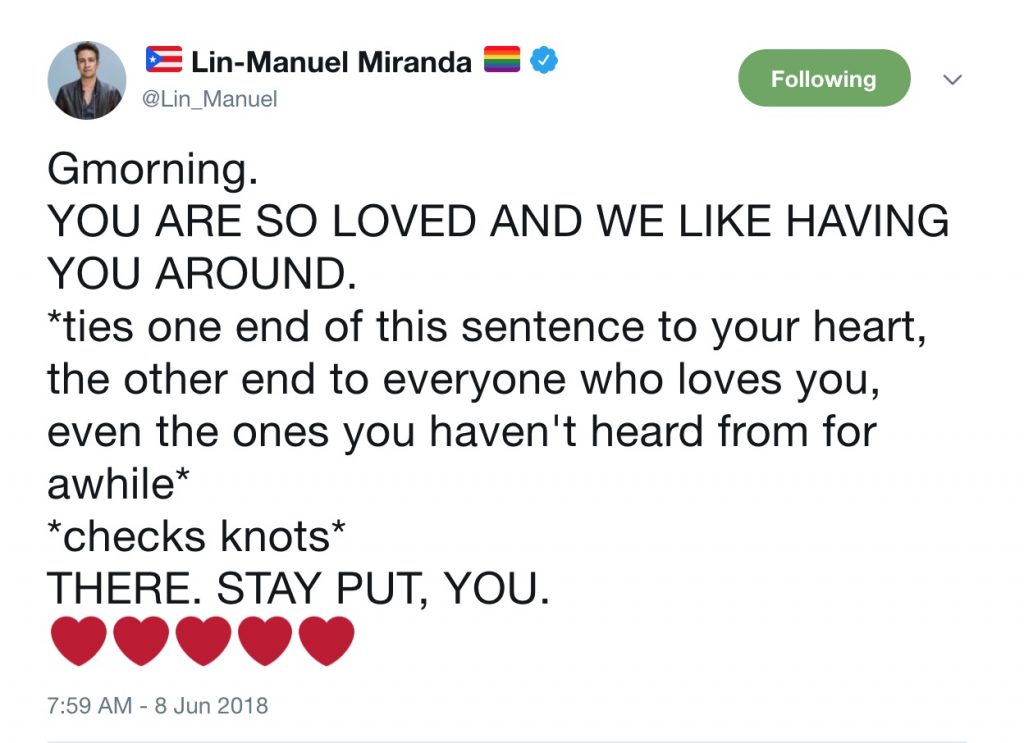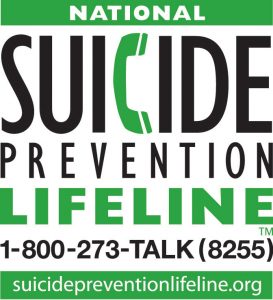With the tragic, high-profile suicides of Kate Spade and Anthony Bourdain in the news this week, surely a lot of our kids are going to be asking questions about suicide. To top it off, they may have heard last month’s announcement about a second season of 13 Reasons Why. And of course, our kids are all too aware of the proliferation of school shootings, and how they often end with the shooter taking his own life.
And yeah, it’s all just awful and overwhelming.
Related: Should your kids be watching 13 Reasons Why? 15 must-read articles to help you figure it out.
One of the toughest parts about parenting is hearing them ask those questions about the world we wish we didn’t have to answer just yet. In fact, forget “tough” — it downright sucks. But “keeping kids innocent” really isn’t the best policy as your kids hit grade school age.
As far as I’m concerned, I’d rather my kids sit down with me and get some real facts, instead of asking friends who may not always be so reliable.
Or as Child Psychologist Polly Dunn wrote, you’d rather have your children know that you are a person that they can talk to about tragedies, rather than a person who hides from them.
When it comes with talking to kids suicide, depression, and really about all kinds of tragedy and natural disasters, a few simple rules have really helped me:
1. Ask kids what they know, then let their own questions about the subject guide you
2. Vary your answers by age, and don’t tell kids more detail than they really need.
3. Say “I don’t know, let’s look that up together” if you don’t know an answer. It’s okay for kids to know that we don’t know everything and that we’re still learning too.
4. Tell them you love them, every single chance you get.
 Lin-Manuel Miranda always has the perfect words, for any occasion, every time.
Lin-Manuel Miranda always has the perfect words, for any occasion, every time.
Consider the NIMH stats about depression — an estimated 16.2 million adults, or 6.7% of all in the US had at least one major depressive episode in 2016 with the prevalence highest among adults 18-25. As for adolescents, 9% or 2.2 million kids aged 12-17 had at least one major depressive episode with severe impairment. That’s a lot. And the numbers are going up.
So it’s not entirely unlikely that severe depression and suicide may touch your own life in some way at some point.
May these resources and links help us all.
Resources to help you talk to your kids about suicide or get help

The National Suicide Prevention Lifeline / 1-800-273-8255 or 1-800-273-TALK
A lot of people don’t realize that this hotline is more than just free, confidential support for people in distress, but they can help you with crisis resources and best practices if you have questions. If you are concerned about a child — or if your child is genuinely concerned about a friend or relative — this is an outstanding resource for all of you.
Kids Help Phone / 1-800-668-6868
This is Canada’s only national 24-hour, bilingual and anonymous phone service offering counseling and referral service directly to children and youth. You can also connect through their website or Always There mobile app for Android or Always There app for iOS.
They have some fantastic articles written just for young people, including a great section devoted to depression and sadness.
Crisis Text Line / 741741
If you (or your kids) are not a talker, text 741741 from anywhere in the USA to text with a trained crisis counselor. This is a well-respected, five-year-old service created especially for teens and young people that spun out from DoSomeething.org. You can read more about it in this New Yorker article.
SAVE: Suicide Awareness Voices of Education
This grief support network has comprehensive info about basic facts and FAQs (a good place to start), warning signs, prevention, treatment, and the correlation between mental illness and suicide.
I also really like their SAVE page for students, which offers suggestions for older kids get involved in a positive way, like coordinating a mental health awareness day in their school, organizing a social media campaign, or hosting a fundraiser.
Related: How to talk to kids about tragedy and natural disaster: Expert tips and resources
The National Center for School Crisis and Bereavement
This organization is dedicated exclusively to helping schools after a crisis or loss, but there’s a lot of excellent info and a comprehensive list of suicide-related resources here that parents can use. They’re mainly focused on kids who have already experienced some kind of tragedy, but there’s still a lot of information that can help you figure out how to talk to your own kids about suicide.
AACAP Depression Resource Center
From the American Academy of Child and Adolescent Psychiatry, this page offers facts for families and answers FAQs about adolescents and depression to help you identify signs and understand different treatment options.
ok2talk.org
This moderated tumblr is a project of NAMI (National Alliance on Mental Illness) specifically for teens 13+ and young adults. The intent is to inspire kids to express themselves, hear from other kids who are struggling, and find help if they need it.
Some helpful articles to help talk to your kids about mental illness, depression and suicide
–On Kate Spade’s Suicide: Mental health doesn’t discriminate on BBC News
–How to talk to kids about mental health on Today’s Parent
–Let it out: How to cope with feeling sad from Kids’ Help Phone
–Talking to your kids about suicide by Child Psychologist Polly Dunn
–Ending the stigma surrounding suicide by Jonathan Foiles LCSW for Psychology Today
–How to talk to kids about suicide by age, from Dr. Debi Gilboa for TODAY.
–Ways to explain suicide to kids from the Moyer Foundation
–How to talk to your kids if you suffer from depression yourself by Lauren Rearick for Huffington Post
Top Photo: Maranatha Pizarras via Unsplash








